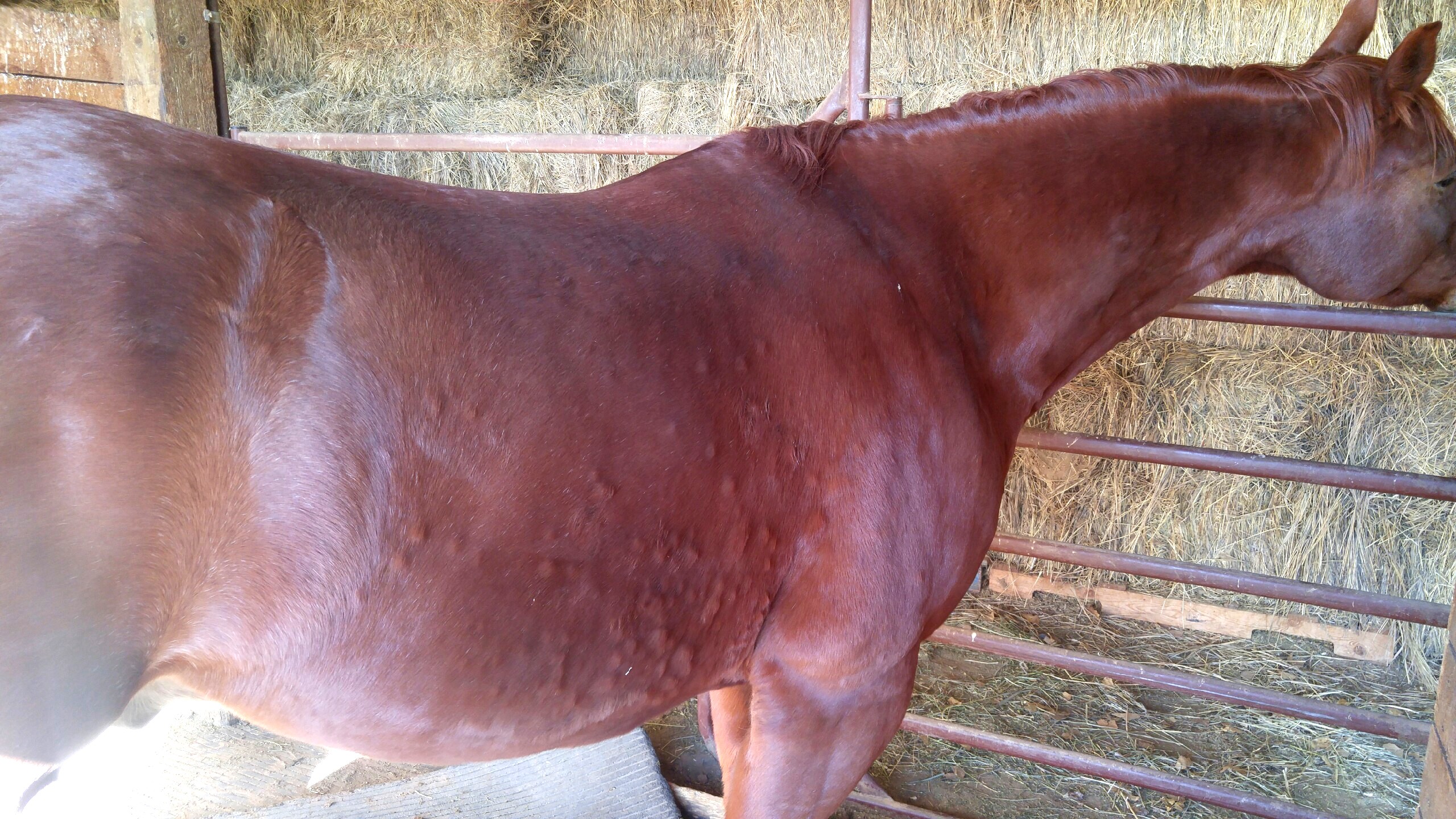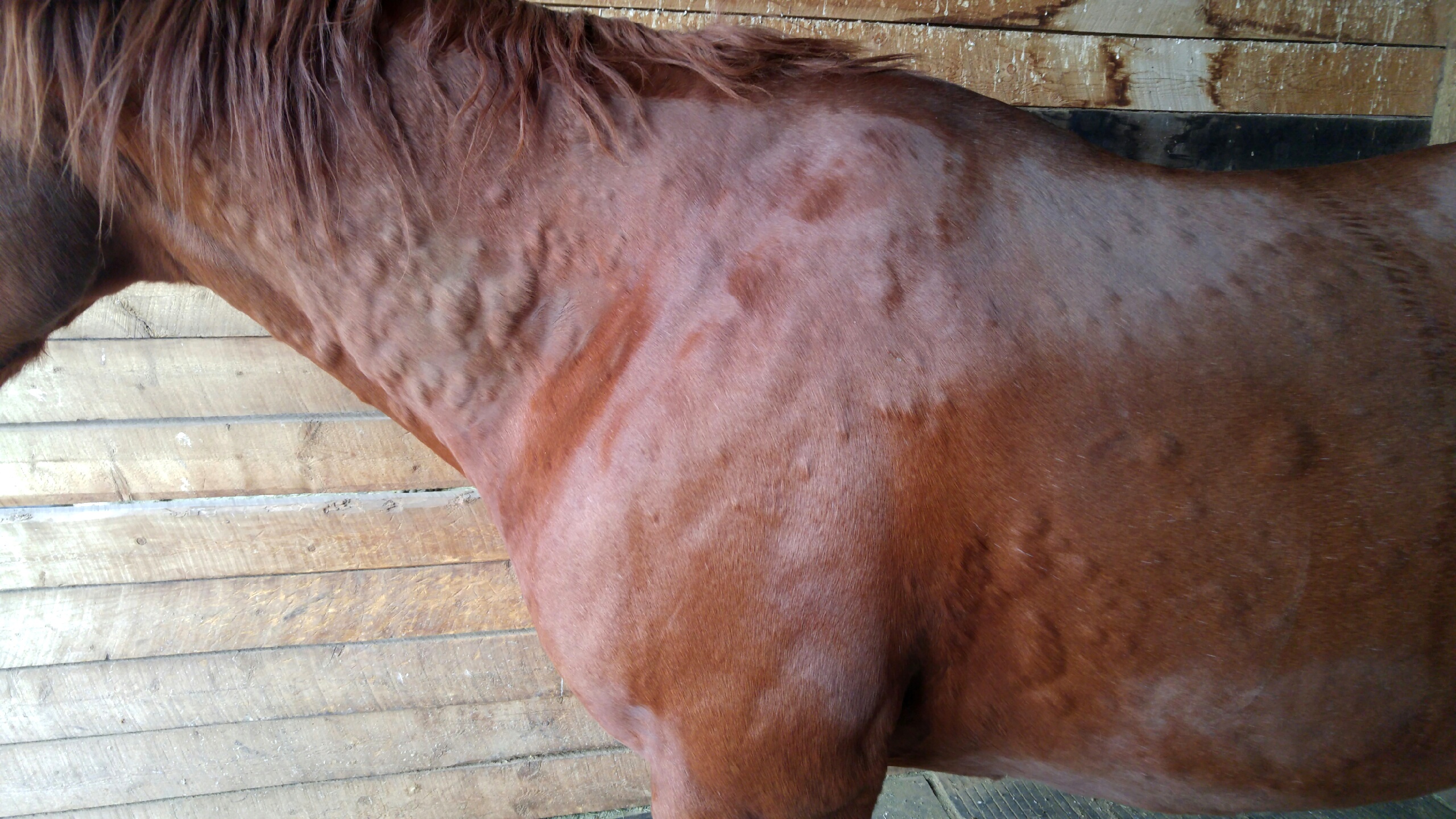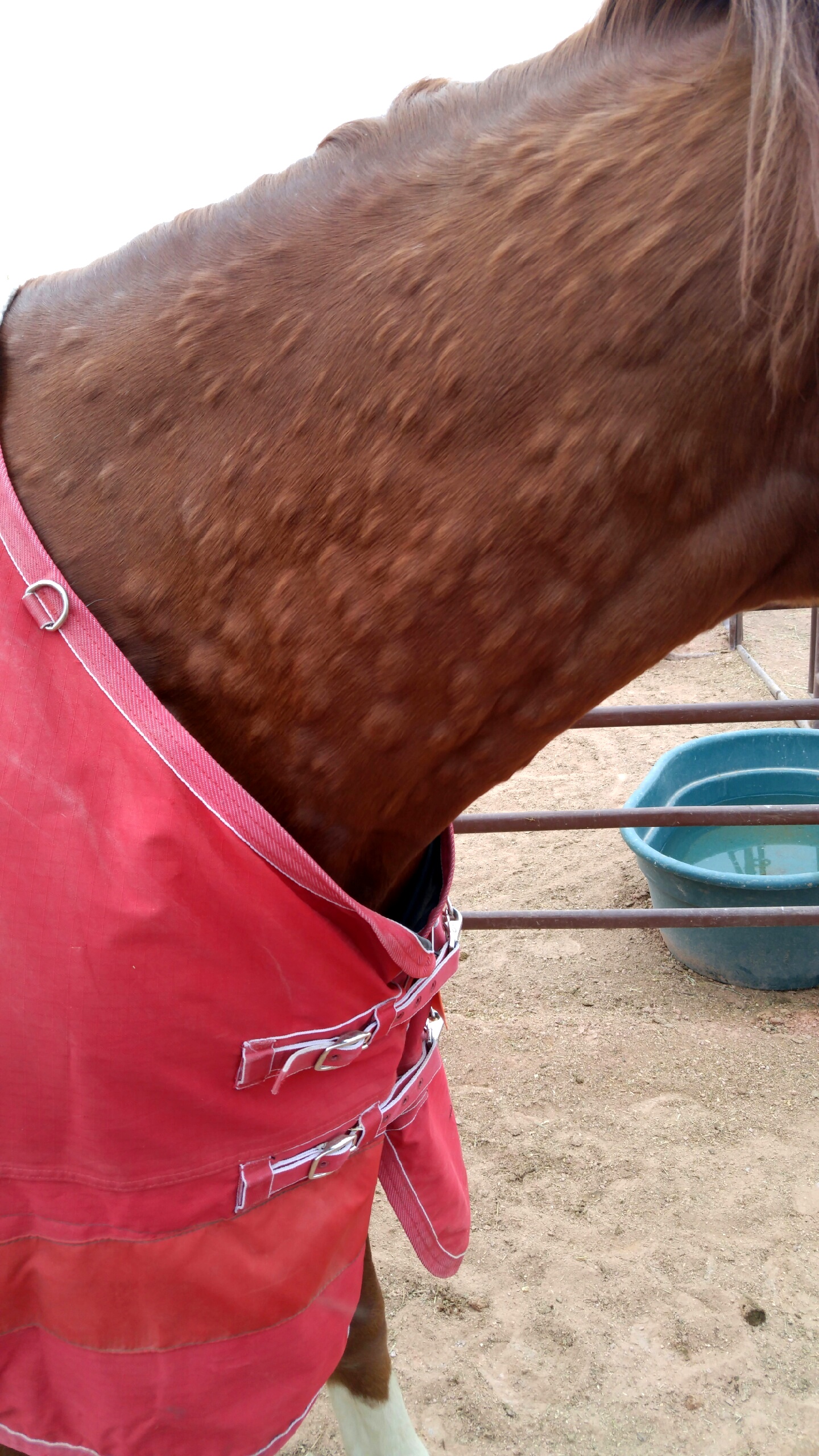
Breaking the Mold to Manage My Horse's Allergies.
Equine allergies come in all shapes and sizes and rarely fit in a neatly outlined box with a generic treatment protocol. That’s what I had always been told and what turned out to be all too true with my horse, Mo. His battle with seasonal allergies kept both me and my vet on our toes to find a combination of treatment and management that would regulate his symptoms and, while every case is different, perhaps my story will help someone find the upper hand they need.
Mo, one of my western performance horses, had just entered his 7 th year of life, 5th year of competition and was doing splendidly. In the same program as my other horses, he was in good health, body condition and fitness. He was quickly finding his groove in the ring and becoming one of my go-to mounts for many events. Fall rolled around and Mo broke out with one of the worst cases of hives I’d ever seen. Nothing in his routine had changed; no new feed, hay, housing, maintenance…nothing. The hives were so bad that we were forced to stop training and working toward our competition goals until we got them under control. My vet evaluated him and prescribed a series of steroid injections in an attempt to resolve the issue. Four weeks and several steroid doses later, Mo was feeling much better and we returned to work.

We went an entire year without another outbreak of hives and, truthfully, I’d almost forgotten it happened until one day they were back…with a vengeance. Again, my vet came out and we gave him several doses of steroids which eventually got rid of the hives but, this time, it took 8 weeks. The hives, like last time, were so severe that riding was impossible and we lost two months of important training time and conditioning.

The next year, we didn’t make it to fall before the hives returned and this was the worst case yet. The steroids we had used before had no effect and poor Mo, despite our best efforts, still suffered after 3 months of treatment. At that time, my vet prescribed powerful antihistamines along with a full dose of Aleira, an Omega-3 supplement, to boost his immune system and, after several more weeks, Mo was back to his old self and we returned to work.

After 6 months on this regimen, I had my vet perform an allergy sensitivity panel and started him on hyposensitivity injections after discovering Mo was allergic to alfalfa, beets, wheat, soy, mulberry and aspergillus. This information led us to work with our local feed store to develop a custom blended feed and begin soaking his grass hay daily prior to feeding. At the recommendation of my vet, we also started him on a daily digestive aid, Assure Guard Gold, and continued feeding Aleira.
Since beginning this rigorous management protocol after Mo’s third outbreak, his only relapse has been when I miss a dose of Aleira. I can miss a dose or two of the antihistamines or even give his hyposensitivity injection late and he won’t relapse but, if a dose of Aleira is skipped, poor Mo is covered in hives again. If you have a horse struggling with chronic allergies, I urge you to research your options thoroughly as medications are clearly not a standalone treatment in many cases. I am very thankful for my vet’s recommendation of this supplement and his case is a true testament to the power a quality Omega-3 plays in allergic and immune compromised horses, along with proper management.

